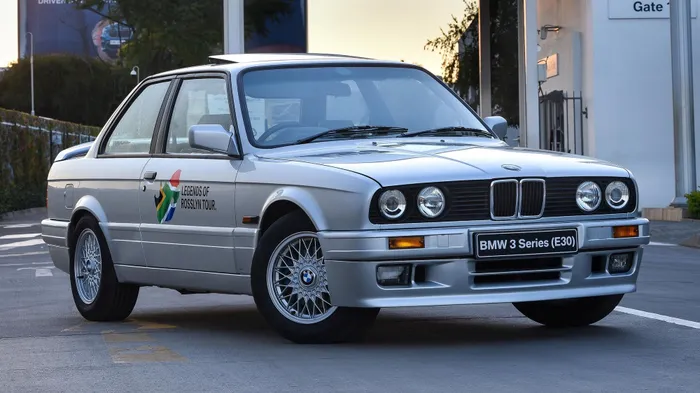Youngtimers are revving up South Africa's classic car market

Discover how a new generation of collectors, fuelled by nostalgia, is transforming South Africa's classic car market and redefining what it means to own a piece of automotive history.
Image: Supplied
In an automotive renaissance sweeping through South Africa, the classic car market is experiencing an unexpected surge, primarily driven by a new generation of collectors in their 30s and 40s.
Commonly referred to as "youngtimers," these enthusiasts are turning their nostalgic eye towards vehicles from the 1980s, 1990s, and early 2000s, an era rich with personal memories and cultural significance.
Sesh Govender, Underwriting Specialist for iTOO Classic Cars, offers a glimpse into this phenomenon. “These are individuals drawn to cars they grew up with, or that their parents drove.
The old box-shaped BMW 325is, for example, stands out as an iconic model in South Africa.
It transcends mere rarity; it's about memory,” he explains. For many collectors, these vehicles are vessels of nostalgia, connections to personal milestones and aspirations.
Classic cars, typically defined as vehicles 20 years or older, have broadened their definition within the modern marketplace.
What may seem atypical, like considering a 2005 model a classic—reflects shifting consumer perceptions.
A vehicle's value appreciation plays a critical role; if a car purchased for R100,000 in 2005 now holds a value of R150,000, it earns its place in the classic category, representing both investment potential and historical significance.
“Classic car collecting is often viewed as a sound investment, but there’s a deep emotional weight attached to these vehicles,” Govender elaborates.
Unlike standard cars that are frequently written off and replaced, the classic car community predominantly embraces restoration.
An astounding 90% of owners opt to restore rather than write off their beloved vehicles, viewing them not just as modes of transport, but as legacies.
The role of online sales has also transformed the landscape for classic car enthusiasts, particularly accelerated by the Covid-19 pandemic.
With the digital marketplace offering an expansive reach, collectors eager for specific makes and models can easily monitor listings online.
“If you are after a Jaguar, for instance, you might set Google Alerts or frequently check niche dealer websites,” Govender notes.
“Given the rarity of these cars, a buyer often commits without having seen the vehicle in person.” This approach mirrors the evolving dynamics of shopping in a digitised world, yet remains heavily specialised.
Moreover, classic car auctions have gained newfound traction, frequently initiated by sellers who have inherited collections.
Many individuals find themselves in possession of vehicles bequeathed by parents who were passionate collectors but feel uncertain about how to maintain or preserve them.
As collectors invest significant sums into these masterpieces, classic car insurance becomes an indispensable element of safeguarding such valuable assets.
Unlike standard coverage, this insurance is tailored to protect vehicles that hold emotional and historical significance.
“These are not just cars; they are investments, heirlooms, and symbols of identity,” Govender stresses.
With classic cars often appreciating in value, insurers recommend regular valuations, ensuring that coverage aligns with market trends and restoration investments.
Ultimately, the essence of classic car insurance extends beyond risk management.
It encompasses a profound understanding of the collector's mindset, the nostalgia, pride, craftsmanship, and emotional connection that defines the very spirit of classic automotive culture.
As a new wave of youngtimers takes the reins, South Africa's classic car market is not merely alive; it is thriving with the echoes of cherished memories and aspirations.
BUSINESS REPORT